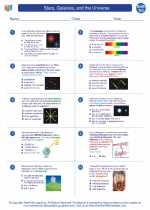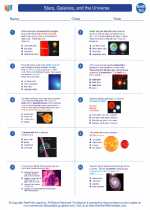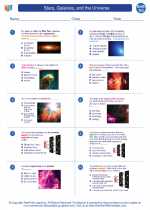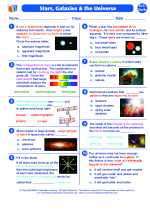Space Exploration
Space exploration is the investigation and study of outer space. It involves the discovery and observation of celestial bodies such as planets, moons, stars, and galaxies, as well as the development and use of technology to explore outer space. Space exploration has led to numerous scientific advancements and has expanded our understanding of the universe.
History of Space Exploration
The history of space exploration dates back to ancient times when early civilizations observed the movements of celestial bodies. In modern history, space exploration began with the launch of the first artificial satellite, Sputnik 1, by the Soviet Union in 1957. This event marked the beginning of the space age and sparked the space race between the United States and the Soviet Union.
Key Milestones in Space Exploration
- First human in space: Yuri Gagarin, 1961
- Moon landing: Apollo 11, 1969
- Space shuttle program: NASA, 1981-2011
- International Space Station (ISS): 1998-present
- Mars rovers: Spirit, Opportunity, Curiosity, Perseverance
Benefits of Space Exploration
Space exploration has led to numerous benefits, including:
- Advancements in technology and innovation
- Understanding of Earth's climate and natural disasters
- Medical advancements through research in microgravity
- Inspiration for future generations
Challenges of Space Exploration
Despite its benefits, space exploration also presents challenges, such as:
- Cost of space missions
- Risks to human health in space
- Sustainability of space exploration activities
- International cooperation and geopolitical considerations
Future of Space Exploration
The future of space exploration holds exciting possibilities, including:
- Manned missions to Mars and beyond
- Exploration of exoplanets and the search for extraterrestrial life
- Advancements in space tourism and commercial spaceflight
- Development of new propulsion technologies for interstellar travel
Study Guide
To prepare for a study session on space exploration, consider the following key topics:
- Historical milestones in space exploration
- Technological advancements in space exploration
- Current and future missions to explore outer space
- Benefits and challenges of space exploration
- Potential impact of space exploration on society and the environment
Be sure to review key figures, missions, and scientific discoveries related to space exploration. Understanding the significance of major events and developments in space exploration will provide a solid foundation for further study and discussion.
.◂Earth Science Worksheets and Study Guides High School. Stars, Galaxies, and the Universe

 Worksheet/Answer key
Worksheet/Answer key
 Worksheet/Answer key
Worksheet/Answer key
 Worksheet/Answer key
Worksheet/Answer key
